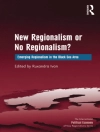Available Open Access digitally under CC-BY-NC-ND licence.
This book examines the idea and practice of co-creation in public services. Informed by practical action, lived experience and research from 10 countries across Europe, including the UK, it shines new light on the theory and reality of co-creation by conceptualising it in terms of human rights, social justice and social innovation.
Focusing on human dimensions, the book presents real life examples in public services as diverse as social care, health, work activation, housing and criminal justice. It also highlights the ways digital technologies can accelerate or hinder co-creation.
The book confronts a paradox at the heart of co-creation: standardisation and inflexibility in planning and resourcing, or ‘concrete-ness’, counters the ‘elasticity’ required to sustain co-creation in complex contexts.
Table of Content
1. Introduction: Co-creation and the ‘sandcastle’ problem – Sue Baines, Rob Wilson, Chris Fox, Inga Narbutaité Aflaki, Andrea Bassi, Heli Aramo- Immonen and Riccardo Prandini
2. Understanding co-creation: strengths and capabilities – Chris Fox
3. Co-creation as a driver of social innovation and public service reform? – Andrea Bassi, Inga Narbutaité Aflaki, Heli Aramo-Immonen and Sue Baines
4. Co-creating capacity? Empowerment and learning for front-line workers and organisations – Inga Narbutaité Aflaki and Andrea Bassi
5. Co-creating with marginalised young people: social media and social hackathons – Heli Aramo-Immonen and Hanna Kirjavainen
6. Digital technology, stigmatised citizens and unfulfilled promises – Sue Baines, Jordan Harrison and Natalie Rutter
7. Connecting citizens and services through the power of storytelling – Hayley Trowbridge
8. Co-governance and co-management as preliminary conditions for social justice in co-creation – Riccardo Prandini and Giulia Ganugi
9. Evaluation and the evidence base for co-creation – Chris Fox, Andrea Bassi and Sue Baines
10. Living Labs for innovating relationships: the Co SMo S tool – David Jamieson, Mike Martin, Rob Wilson, Florian Sipos, Judit Csoba and Alex Sakellariou
11. Moving towards relational services: the role of digital service environments and platforms? – Mike Martin, Rob Wilson and David Jamieson
12. Conclusions: Moving beyond building sandcastles … long-term sociotechnical infrastructure for social justice – Rob Wilson, Sue Baines, Andrea Bassi, Heli Aramo-Immonen, Riccardo Prandini, Inga Narbutaité Aflaki and Chris Fox
About the author
Riccardo Prandini is Professor of Sociology of Culture and Communication at University of Bologna.












